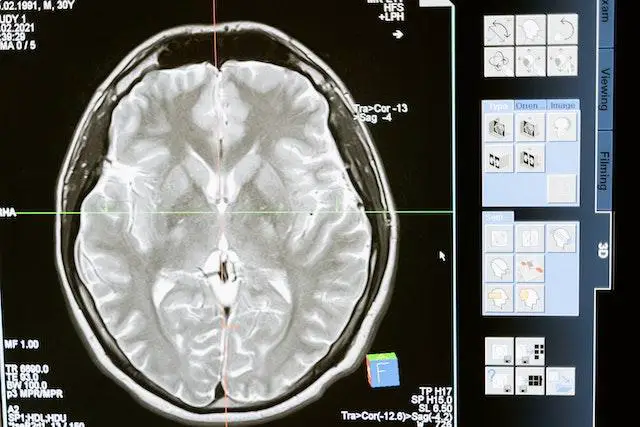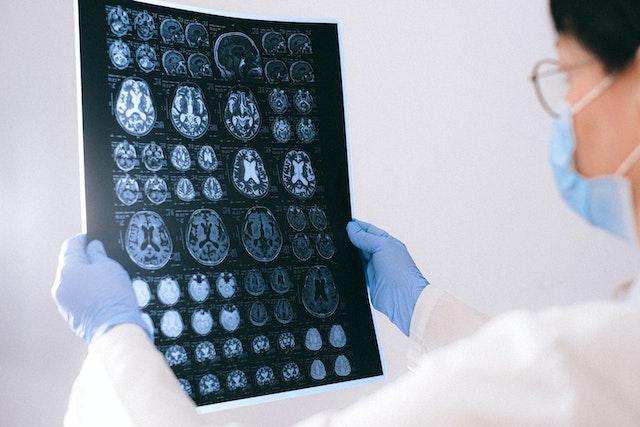
An abnormality detected on a brain scan is called a lesion. Lesions can be either light or dark and will look different from normal brain tissue.
Brain lesions are commonly seen on MRIs or CT scans and can have many causes including stroke, trauma, infection, tumors, and degenerative diseases like multiple sclerosis.
A brain lesion is commonly found unexpectedly during an imaging test that was originally unrelated to the condition or symptom being examined.
The size of a brain lesion can be large or small, and the resulting condition could be minor or life-threatening.
What is a lesion in the brain?
Lesions are areas of damage or death in the brain. They can be caused by many things, including stroke, trauma, tumors, infection, and disease.
Lesions can be either focal, meaning they are confined to a specific area, or diffuse, meaning they are spread out over a larger area.
Lesions can also be either primary, meaning they occur in the brain itself, or secondary, meaning they occur elsewhere in the body and then spread to the brain.
Lesions can cause a wide range of symptoms, depending on their size and location.
For example, a small lesion in the motor cortex could result in paralysis on one side of the body, while a larger lesion in the hippocampus could cause memory loss.
- Read also: What Happens if The Amygdala is Damaged
- Read also: How Trauma Affects The Brain
How common are brain lesions?
Brain lesions are quite common and can affect people of all ages. In fact, it is estimated that about 10% of the population has at least one brain lesion detected on a scan.
Brain lesions can be caused by a variety of things, including tumors, traumatic brain injury, stroke, and degenerative diseases.
Most brain lesions are benign and do not cause any symptoms. However, some brain lesions can be cancerous or can lead to neurological problems.
If you have been diagnosed with a brain lesion, your doctor will monitor you closely to watch for any changes or problems.

Can brain lesions heal?
The answer to this question depends on the cause of the lesion. Some types of lesions, such as those caused by stroke or trauma, may heal over time as the brain naturally repairs itself.
However, other types of lesions, such as those caused by tumors or degenerative diseases, may not heal and can even continue to worsen over time.
In some cases, treatment may be able to help improve the prognosis for people with brain lesions.
For example, surgery may be an option for people with brain tumors, and medication may be helpful for people with degenerative diseases.
However, unfortunately, there is not currently a cure for all types of brain lesions.
How long can you live with a brain lesion?
The prognosis for someone with a brain lesion will depend on the specific cause and location of the lesion.
Some brain lesions, such as those caused by stroke or trauma, may not have long-term effects if they are able to heal over time.
Other brain lesions, such as tumors or degenerative diseases, may have a more serious impact on a person’s health and life expectancy.
In general, early detection and treatment can improve the prognosis for people with brain lesions.
It is important to see a doctor if you have any symptoms that could be related to a brain lesion, such as changes in cognitive function or paralysis.
Overall, the prognosis for someone with a brain lesion will vary greatly and depends on individual factors. It is important to work closely with your healthcare team to monitor the lesion and manage any symptoms or complications.
- Read also: Does Alcohol Affect Memory
- Read also: What Causes Aphantasia
Final words
Lesions in the brain can result from a wide variety of conditions, ranging from stroke to trauma to tumors.
While each type of lesion can cause different symptoms, they all share one commonality: the potential to cause serious harm to the brain.
Because of this, it is essential that any type of brain lesion be immediately evaluated by a medical professional.
Although some lesions may not require treatment, others may need to be surgically removed in order to prevent further damage.
In any case, prompt diagnosis and treatment are essential for minimizing the impact of brain lesions.



